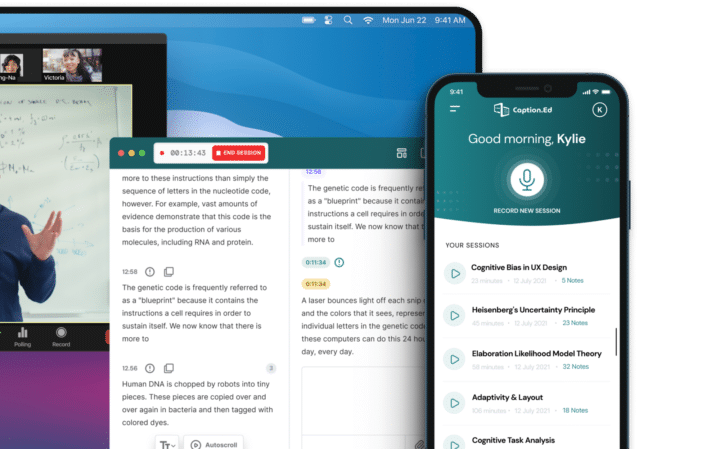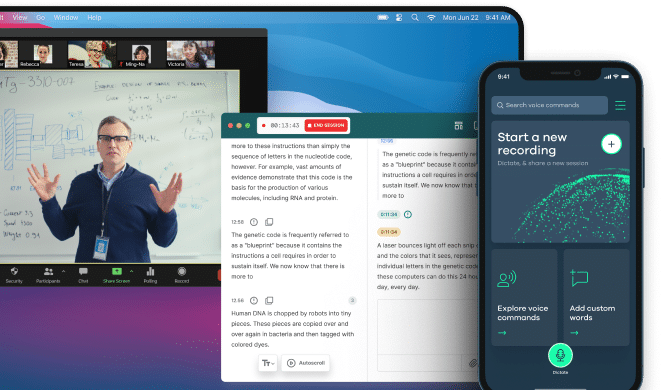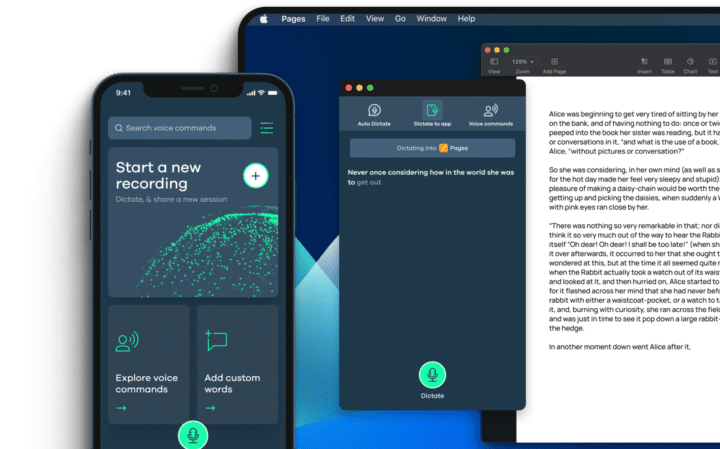Boosting Working Memory in Staff with ADHD
Staff members with ADHD may need support with working memory, like processing and remembering information when it’s given orally. And this is an area where Caption.ed can also help them, since users can capture accurate transcripts to refer to after meetings – even informal ones using captioning through our app.
By freeing up space in a user’s working memory, Caption.ed can bridge the gap for employees with ADHD. And with both channels of visual and audio content available, staff members’ working memory becomes less burdened and better able to retain what they see and hear.
Flexibility in Working Patterns or Location
Some neurodivergent staff may need you to make adjustments to their working patterns or even the locations they work from. Busy, crowded office spaces can lead neurodivergent people to experience problems with distraction, overstimulation, and sensory overwhelm.
One way to make reasonable adjustments can be to offer them space apart from colleagues or have the option of quieter spaces to work from. Letting them step out from hot-desking obligations, for example, can make a huge difference in productivity. Or, in many cases, offering them more opportunities to work from home.
Allocating a Work Mentor or Buddy
One type of reasonable adjustment can be appointing a workplace buddy or mentoring scheme to reduce feelings of overwhelm.
Staff members with ASD, in particular, can struggle with problems such as face blindness, matching cultural norms around communication, and feelings of apartness or isolation. And an appropriate buddy or mentor could help with aspects such as a:
Second pair of eyes to check or validate information or reports.
Referral points to help with navigating cultural norms and workplace habits.
Supportive during points of overwhelm or overstimulation.
Offering Personal Workstations
Personalising a workstation can also be a reasonable adjustment for staff who need specific help with physical needs or the opportunity to reduce the number of distractions in the working area.
Personalisation could include standing desks, earphones, ergonomic chairs, and particular types of low-level lighting.
Altering Tests at the Interview Processes
A job interview should not put any applicants at a disadvantage because of their disability or neurodivergence. As a result, applicants can request that potential employers make reasonable adjustments in the recruitment process.
According to the charity Scope, examples of adjustments to the recruitment process may include:
- A BSL interpreter
- Screen readers to help with computer-based tests
- Extra time to complete assessments
- Requesting interview questions in advance
Providing Dictation Software
Employees with dyslexia or dyscalculia may need support with written communication. And dictation software is a perfect form of assistive technology that can help them overcome these difficulties and communicate with fluency.
Our dictation software–TalkType–is designed for people who may struggle to type using keyboards. And, as well as supporting better accessibility, TalkType can give staff a stronger sense of independence and autonomy.
Make Reasonable Adjustments with Caption.Ed and TalkType
Caption.Ed and TalkType are CareScribe’s flagship forms of assistive tech. And they can elevate staff performance levels when used as part of a workplace needs assessment or the Access to Work scheme.
Learn More About Our Products
Learn More
By allowing staff greater autonomy and control over productivity and communication, they’re both recognised and effective AT tools that will make a difference for your teams.
Chat with us now about making reasonable adjustments through Access to Work or a Workplace Needs Assessment.




